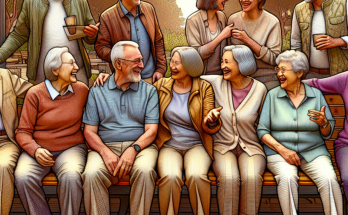The end of a friendship can be just as painful as the end of a romantic relationship. When someone you once considered a close friend cuts you out of their life, it leaves a hole and feelings of sadness, anger, and loss. However, there are healthy ways to process the grief of losing a friend, move on, and come out stronger. With time and intention, you can heal and forge new positive relationships.
Accept the Reality of the Situation
The first step in healing from a lost friendship is to fully accept that the relationship has ended. This former friend may have:
- Ghosted you, stopping all communication out of the blue
- Blocked you on social media platforms
- Explicitly stated they no longer want to be friends or want distance
As difficult as it is, acknowledge that the friendship you once had is gone. The person you shared so much with, trusted deeply, and thought would be there for you is no longer going to be an active part of your life. Even if you don’t understand why they want to end the friendship, accept their decision as the reality now.
Don’t try to convince them to stay friends or force them to communicate with you against their will. This will only lead to more pain and discord. Avoid calling, texting, or trying to confront them about their decision. Respect their choice by acknowledging the friendship has reached its end, as hard as that is to comprehend.
Acceptance is the only way forward to start healing. Trying to deny reality or cling to false hope will make the grieving process harder and leave you stuck. As powerless as this situation makes you feel, you do have the power to accept what is and gradually move on.
Allow Yourself to Grieve
It’s normal and healthy to grieve the end of an important friendship that once meant so much to you. You may feel profound sadness at the loss or unfairness of it all. Anger, hurt, anxiety, loneliness, shame, numbness, or relief may arise as well. This complex blend of emotions is all part of grieving.
Let yourself fully feel and process whatever comes up, even if it’s painful or confusing. Reach out to supportive loved ones who will listen without judgment. Talk about the positive memories and the sense of loss you feel. Cry if you need to cry. Journal about your turbulent emotions as another outlet.
Avoid suppressing or ignoring grief in the hope that you’ll just “get over it.” Finding healthy ways to acknowledge and express difficult feelings is key for moving through the grieving process in a constructive way.
If you need additional support, consider seeing a counselor or therapist. They can help you work through intense grief, provide coping strategies, and give reassurance that what you’re feeling is normal.
While grieving may make day-to-day life harder at first, it helps you gain closure, readjust to your new reality, and move forward. Be patient and take all the time you need. The intensity of grief tends to come in waves that will gradually become less frequent and acute.
Identify Lessons and Patterns
Once the initial intensity of your grief has subsided a bit, try to step back and reflect on the friendship more objectively. Were there any lessons, insights, or patterns you can identify? Looking inward with compassion can help you gain wisdom to apply to future relationships.
- What ways did you contribute to the problems, and how can you improve or make amends? Take responsibility for your mistakes without blaming yourself entirely.
- Did you overlook or deny any red flags at the beginning? Make note of these for the future.
- Were there signs the friendship was one-sided or conditional? Recognize your worth isn’t defined by this.
- What communication habits or boundaries do you need to enforce in new friendships?
- How might this experience help you identify who your true friends are?
Processing the relationship and breakup in this more analytical way helps you gain perspective. Even pain can be turned into an opportunity for growth. Consider writing down your reflections.
Forgive Your Former Friend
As you process the grief and lessons from the dissolved friendship, work towards forgiveness. This doesn’t mean excusing any behavior that hurt you. Forgiveness is about releasing bitterness and anger for your own peace of mind.
Harboring resentment only extends the emotional toll and keeps you mentally tethered to the past. Forgiveness allows you to disentangle from negativity and focus your energy in a more positive direction.
Forgiveness doesn’t necessarily mean reconciling the friendship. You can forgive someone while still acknowledging that separating was the healthiest choice. Forgiveness simply frees you from the pain of holding onto bitterness.
Your former friend may have acted unfairly, but carrying resentment won’t undo the pain their actions caused. Granting forgiveness is brave and liberating. Send them well wishes silently if you must, but avoid reaching out to express forgiveness directly. Forgiveness is more for your benefit than theirs.
Reaffirm Your Own Worth
The dissolution of a friendship can take a toll on your self-esteem. You may start to question if you are worthy and deserving of real friendship. It’s important to separate your value from your ex-friend’s behavior. You are whole and good regardless of how they treated you.
Make a list of all your positive qualities that have nothing to do with this person or this one experience. Read over it whenever you start to feel worthless or insecure. Remind yourself:
- You have plenty of love and friendship in your life from people who choose to stay. This shows your value.
- There are kind people in the world who will appreciate you for who you are.
- You deserve friends who offer mutual care, respect, and consistency.
- You are inherently worthy, with or without any one friendship.
Focus on the people who do love you and the security of those bonds. Don’t let rejection from one person distort your self-image.
Reach Out to Other Friends
It’s tempting to isolate yourself from other friends when you’re grieving, but nurturing current fulfilling relationships can be instrumental in healing. Make plans with friends who make you feel uplifted, seen, and encouraged. Let the comfort of those who sincerely care help soothe the sting of rejection.
Lean on your social support network, even if you don’t feel like socializing at first. Positive interactions can boost your confidence and spirits. Surround yourself with people who want to be there for you. Don’t deprive yourself of existing friendship just because one bond was broken.
If you’ve been neglecting other friends, apologize and make an effort to reconnect. They’ll likely be happy to welcome you back. Good friends understand and can help fill the void as you move forward.
Immerse Yourself in Meaningful Activities
Staying busy and engaged in activities that bring you purpose can help minimize time spent obsessing over the lost friendship. Immerse yourself in hobbies, work, passion projects, volunteering, or anything else that makes you feel enthused and alive.
When you’re focused on personal fulfillment, you’ll find a sense of direction and your mood will naturally elevate. Discover new hobbies that challenge you in positive ways and expand your social network. Meet new people who share your interests through classes, clubs, or local community groups.
Being actively involved in the world around you creates joy, makes time pass smoothly, and puts things in healthier perspective. Don’t let one broken friendship derail your goals. Immerse yourself in pursuing the life you want.
Be Open to New Friendships
The idea of opening up to new friendships can feel scary after you’ve lost someone close. Worries about getting hurt or rejected again may hold you back from letting new people in. But don’t let fear close you off from potential new friendships.
If you come across people who seem kind, share your values, and take an interest in understanding you, give them a chance. Start slowly and focus on just enjoying their company without expectations. Pay attention to red flags if they appear, and be ready to set healthy boundaries. But stay open to the possibility of cultivating new positive connections.
Not every new person will become a close friend. That’s okay. You’ll meet great people who can still add joy to your life even if the friendship remains casual. New friends help counteract the void left behind and renew your faith in people.
Seek Additional Help if Needed
If trying the usual methods of healing haven’t eased your grief or loneliness, seek help from a mental health professional. Therapists are trained to help you safely process and resolve complex feelings about a friendship breakup. They can teach coping strategies to make day-to-day life feel more manageable again.
Signs you may want to seek counseling include:
- Prolonged depression or crying spells
- An inability to function normally
- Severe loss of appetite or overeating
- Withdrawing from loved ones and life
- Trouble concentrating at work or school
- Feeling like grief isn’t improving over time
Don’t feel ashamed about needing extra support. Friendship breakups can be traumatic. Seeking help is brave and smart. A counselor provides judgement-free guidance to restore hope, self-worth and emotional stability.
Steps to Promote Healing
Here are some additional steps you can take to promote healing and move on:
| Analyze | Release | Affirm | Engage | Seek Help |
|---|---|---|---|---|
| Identify lessons and patterns from the friendship | Forgive your former friend | Reaffirm your self-worth | Reach out to other friends | Seek counseling if needed |
| Accept responsibility for your role | Let go of bitterness | Remind yourself of positive qualities | Make new friends slowly | Be patient with yourself |
| Examine needed boundaries/communication habits | Avoid directly contacting them | Focus on current fulfilling relationships | Immerse yourself in hobbies and passions | Don’t isolate yourself |
Be Patient with Yourself
Healing emotionally from a friendship breakup doesn’t happen overnight. Don’t get frustrated if your grief comes in waves or lingers longer than you’d hoped. Acknowledge your feelings in the moment, even when they seem like steps backward.
Honor what you need day by day, week by week. Let yourself move through the phases of grief in your own time, whether that’s weeks, months, or longer. With self-care and patience, the pain will gradually subside. You may never forget the friendship, but the hurt will lessen.
Profound bonds leave lasting imprints on us, even when they must end. Trust you have the inner strength to get through this. Brighter days filled with new soul-nourishing friendships are ahead.




